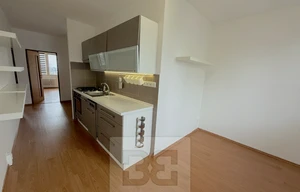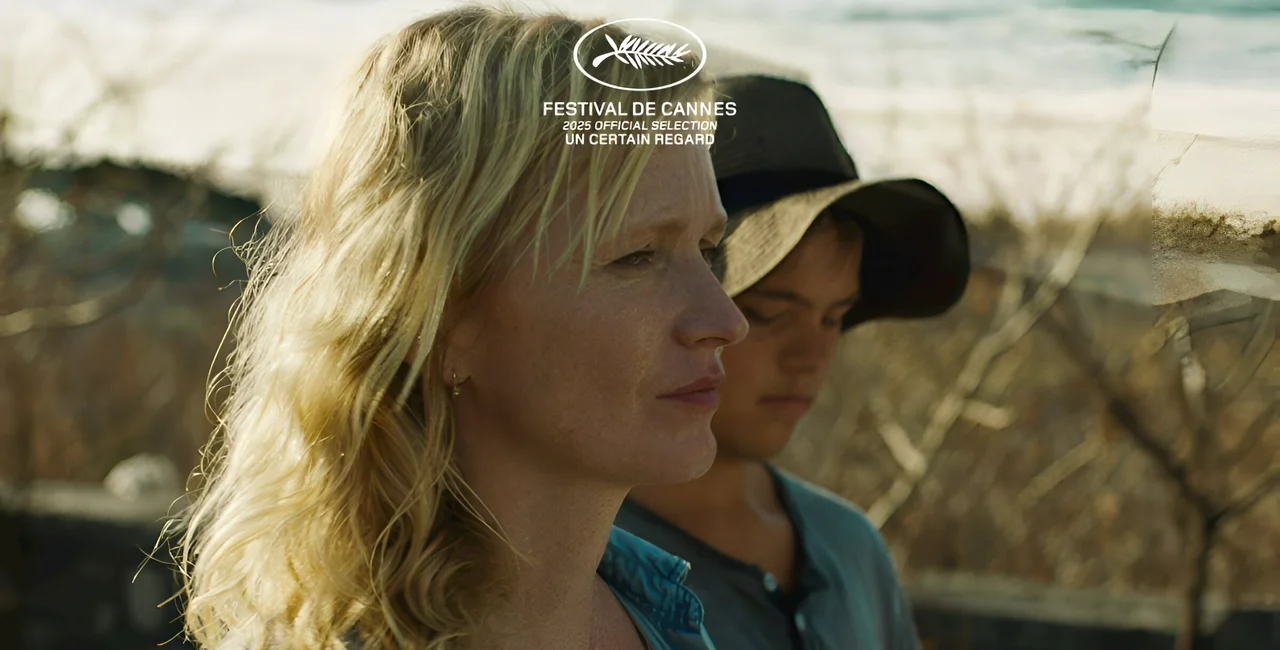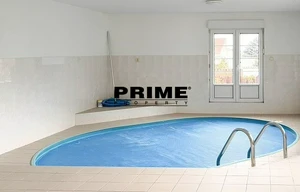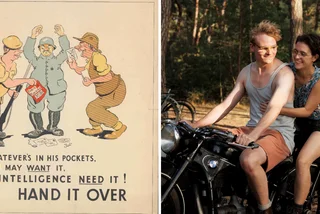For the first time in over three decades, a Czech feature film is competing at Cannes. Caravan (Karavan), the highly anticipated debut feature from director Zuzana Kirchnerová, has been selected for the Un Certain Regard section of the 78th Cannes Film Festival—a significant milestone for Czech cinema.
Kirchnerová, who previously won at Cannes with her 2009 student short Bába, brings a deeply personal story to the screen with Caravan.
The film follows Ester, a woman in her mid-forties (played by acclaimed Czech actress Aňa Geislerová), who embarks on a spontaneous road trip across Italy with her mentally disabled teenage son after years of full-time caregiving. Equal parts poetic and raw, Caravan explores the complicated terrain of motherhood, selfhood, and the longing to break free.
“This is a film for all parents who have ever wanted to escape their responsibilities and return to their youth,” said Kirchnerová. “At its heart, it’s about the courage to want something for yourself again.”
The film is already drawing praise for its unflinching honesty and emotional nuance. Kirchnerová co-wrote the screenplay with Tomáš Bojar and Kristina Májová, drawing on her own experience raising a disabled son. The film’s stripped-back narrative and intimate tone earned it both the FILM FOUNDATION and Torino Production Awards before production even began.
Shot across Emilia-Romagna and Calabria in Italy, Caravan captures a different side of the country—sun-drenched but emotionally complex. Ester’s story isn’t one of easy escape; it’s a gradual rediscovery of agency, love, and limits. The addition of Zuza, a free-spirited woman who briefly enters their lives, brings lightness and contrast to Ester’s journey.
Geislerová, one of the Czech Republic’s most respected actresses, waited years for the right script to bring her back to Cannes. “From our first meeting, I felt she understood the character completely,” Kirchnerová said. “As a mother of three, she’s not afraid to show the darker sides of parenthood.”
Produced by Dagmar Sedláčková and co-produced by Slovakia’s nutprodukcia and Italy’s Tempesta (known for its collaborations with Cannes favorite Alice Rohrwacher), Caravan is already being described as a quiet triumph.

Apartment for rent, 2+1 - 1 bedroom, 62m2
sídliště Vajgar, Jindřichův Hradec - Jindřichův Hradec III
Sedláčková sees its selection as a victory for Czech cinema—and for filmmaking led by women. “It’s a raw yet tender story about love, doubt, and the freedom we sometimes have to allow ourselves,” she said. “That it resonated with Cannes is no accident.”
A historic return to La Croisette
According to the Czech Film Commission, the last Czech feature to screen in Un Certain Regard was Jan Švankmajer’s The Faust Lesson in 1994. Before that, the golden age of Czech cinema in the 1960s and 70s saw directors like Miloš Forman, Věra Chytilová, and Ján Kadár regularly appearing at Cannes with films that broke boundaries and challenged conventions.
One of the greatest successes of the era was the double award for All Good Natives by director Vojtěch Jasný, which won Best Director and Special Mention awards in 1969. Kirchnerová’s selection revives the legacy of these films while bringing a distinctly modern, feminist perspective.
French actress Juliette Binoche chairs the Cannes jury for this year’s Un Certain Regard section, which includes prominent international names like Halle Berry and Alba Rohrwacher. This adds further weight to Caravan’s inclusion in a category known for championing auteur-driven, socially resonant storytelling.
While Caravan won’t hit Czech cinemas until Aug. 28, 2025, its Cannes premiere on May 15 is already stirring conversation. The teaser trailer offers a first glimpse of Ester’s sun-soaked, soul-searching journey.
TIMELINE: Czechia at Cannes
1946 – Men Without Wings (Muži bez křídel) – František Čáp
Winner: Grand Prix at the inaugural Cannes Film Festival
1968 – The Firemen’s Ball (Hoří, má panenko) – Miloš Forman
Political satire, shown out of competition, later banned at home
1969 – All My Good Countrymen (Všichni dobří rodáci) – Vojtěch Jasný
Winner: Best Director (Prix de la mise en scène), Cannes
A poetic, tragic portrait of a Moravian village under communism
1994 – Accumulator 1 (Akumulátor 1) – Jan Svěrák
Sci-fi fantasy, screened out of competition
2005 – Something Like Happiness (Štěstí) – Bohdan Sláma
Shown in Critics’ Week, later won top prize at San Sebastián
2009 – Bába – Zuzana Kirchnerová
Cinéfondation First Prize (student short category)












 Reading time: 3 minutes
Reading time: 3 minutes 
































